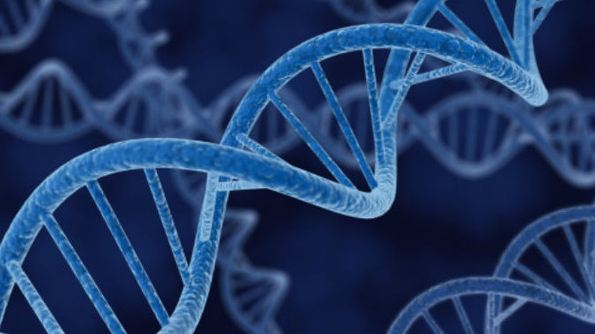Dietary supplements have come under siege lately, as state attorney general (AG) investigations have focused on issues beyond the traditional favorites (e.g., claims substantiation, auto-ship programs), including issues typically left to the purview of FDA, such as the permissibility of ingredients and testing methods. But as industry tries to change in response to these investigations, are the changes causing more problems than they are solving?
NYAG Investigations of Dietary Supplements
In February 2015, New York Attorney General Eric Schneiderman accused major dietary supplement retailers of selling fraudulent and potentially dangerous store-brand supplements and demanded the retailers remove the products from stores. The New York AG alleged, among other things, that 79 percent of supplements tested did not contain DNA consistent with the labeled content.
The New York AG used testing known as “DNA barcoding” to ostensibly measure the quality and purity of the dietary supplements. DNA barcoding evaluates various sequences from a standard DNA region (gene) to identify a particular species of plant, bacteria or fungus. Specifically, DNA barcoding takes a small part of an organism’s DNA and compares it to a known database, similar to the way a UPC barcode scanner works at the grocery store.
Then in September 2015, relying on non-public DNA barcoding testing conducted by the New York Botanical Garden, Schneiderman issued cease-and-desist letters to 13 marketers of supplements containing the ingredient devil’s claw, alleging the products contained a cheaper, related species.

DNA Testing: Is the Rise in Use Justified?
Although state AGs have increasingly relied on DNA barcoding, this test method has prompted significant criticism by industry. For example, one laboratory on the forefront of next-generation DNA testing has noted that “[w]hile DNA sequencing can be a useful tool for authentication of raw herbs (if the appropriate genes are used), its application for finished herbal/botanical dietary supplements is limited due to the generally low quality of DNA in those products.”1
Additionally, members of the academic community have asserted that “standard manufacturing processes such as heating and irradiation, which is used to kill potentially harmful microbes, can destroy DNA” without diminishing health benefits.2 Finally, DNA barcoding is extremely sensitive to contamination, and the potential for cross-contamination during lab testing can cause false positives.
As an alternative to DNA barcoding, some companies have begun utilizing “next-generation sequencing” or high-throughput sequencing. This method evaluates massive amounts (hundreds of thousands of strands) of DNA at once to identify various species of botanicals, animals, fungi and bacteria in raw ingredients and finished products. However, this method has also been criticized by many in the industry. For example, there is no established standard reference library (with known, recognized samples of botanicals that can be used as a comparison for a product or ingredient to be tested), so laboratories must build their own reference libraries. Some in the industry have questioned the lack of a third-party “check” on whether a reference standard is, indeed, the purported species. In addition, the testing does not necessarily account for regional differences in species or genetic drift (crossbreeding) between species. These are but some of the criticisms of DNA testing.
Are New Industry Practices Creating Additional Issues?
As dietary ingredient suppliers and manufacturers begin to utilize DNA testing as one tool in their toolkits, companies must be prepared for what the testing results may show. For example, if testing cannot identify a plant to the species level but only to the genus level, how does this interplay with FDA’s dietary supplement labeling requirements? And how might this affect a company’s claims substantiation? Or if DNA testing identifies more than one species in a batch of raw material, might a company need to change its finished product label on a batch-by-batch basis? Note that DNA testing is generally not quantitative, which may make labeling ingredient amounts even more difficult in the absence of another available qualitative test.
Conclusion
It is clear that methods used to test for the quality, purity and safety of dietary supplements are coming under scrutiny by regulatory and law enforcement authorities, including at the state level. Undoubtedly, state AGs will continue to investigate dietary supplements. Accordingly, companies must be prepared to defend their testing methods under both FDA regulations and state laws; they must be prepared to answer why certain methods may or may not be appropriate for their products; and they must confront hard questions about how changes in test methods affect their regulatory compliance, including labeling and GMP (good manufacturing practice) requirements.
Looking to understand the breadth of AG’s authority and what may be coming next? Join us for the State Attorneys General: Communication & Mitigation Strategies workshop on Wednesday, Oct. 5, at SupplySide West 2016.
Todd Harrison is a partner in Washington with the law firm Venable LLP. Harrison works extensively in the areas of food and dietary supplement safety, labeling and advertising claims.
References
1Reynaud Harbaugh et al., The Capabilities and Limitations of DNA Barcoding of Botanical Dietary Supplements, March 2015, available at crnusa.org/NYAG/The-Capabilities-and-Limitations-of-DNA-Testing-FINAL-3-10-2015.pdf.
2Nicole Twilley, “How Not to Test a Dietary Supplement,” New Yorker Feb. 10, 2015, available atnewyorker.com/tech/elements/dna-barcoding-new-york-dietary-supplement






















